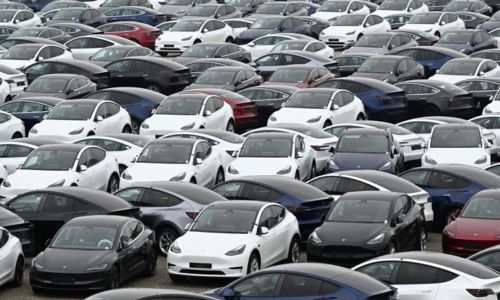Should Bahrain Limit Families to One Car?
TDT | Manama
The Daily Tribune – www.newsofbahrain.com
Report by Zahra Ayaz
Bahrain is grappling with a growing traffic crisis that has frustrated residents and strained the country's infrastructure.
With an ever-increasing number of vehicles on the roads, one potential solution that merits exploration is a policy that would limit each family to owning just one car.
The traffic congestion in Bahrain has reached a critical point, with commuters regularly facing hour-long delays, especially during peak hours.
This has had a significant impact on the country's productivity and quality of life.
"It's not uncommon for a 20-minute drive to turn into an hour-long ordeal," lamented Fatima, a Bahraini resident. "Something needs to be done, and done soon."
A one-car-per-family policy could potentially alleviate this crisis by reducing the sheer volume of vehicles on the roads.
"Fewer cars on the road means less fuel consumption, lower emissions, and reduced strain on our urban planning," said Abel a resident.
Moreover, a restrictive car ownership policy could incentivize greater investment in public transportation, cycling infrastructure, and other sustainable mobility solutions.
This, in turn, could contribute to a more livable and environmentally-friendly Bahrain.
However, critics of this hypothetical policy argue that it would place undue hardship on families, especially those with multiple working members or elderly dependents.
"This policy fails to account for the diverse needs and circumstances of Bahraini households," said Mahmood, a local resident. "It could end up creating more problems than it solves."
There are also concerns that such a restrictive measure could have unintended socioeconomic consequences, disadvantaging lower-income families who may rely on a single vehicle for their livelihoods.
Nevertheless, the debate over potential solutions like a one-car-per-family policy highlights the inherent tension between promoting sustainability and addressing the practical needs of the populace.
Related Posts

